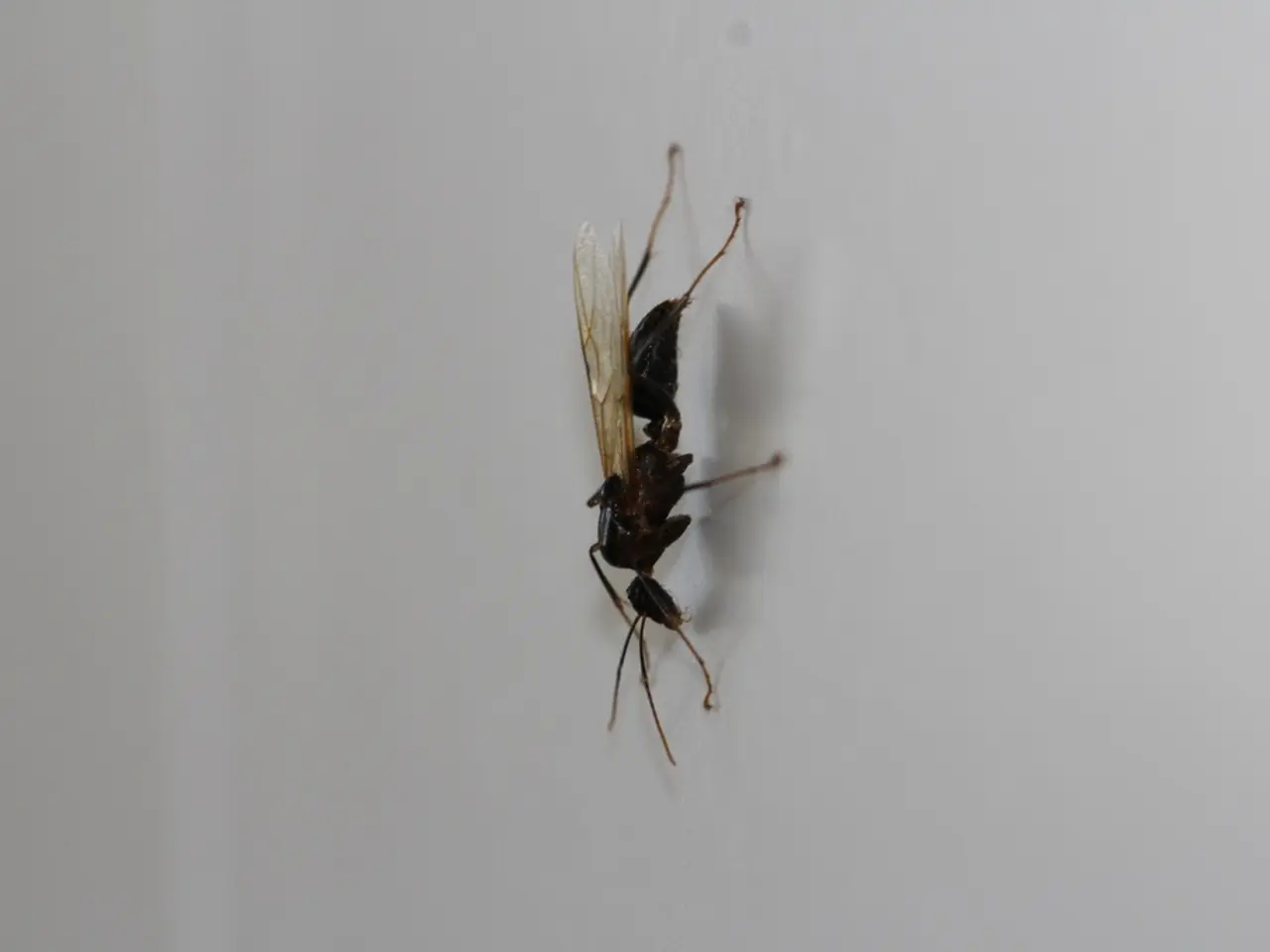Retired individual perishes in his backyard due to an attack by Asian hornets
In a tragic incident that has sent shockwaves through the small town of Fismes, near Reims in Marne, a 67-year-old man lost his life after being stung multiple times by Asian hornets while mowing his lawn on July 22nd.
The man, whose identity has not been disclosed, tried to take refuge in his home after being attacked by the hornet swarm, but collapsed. Firefighters were called by his wife and performed CPR, but were unable to revive him.
Quentin Rome, in charge of the Asian hornet mission at the Museum of Natural History, explained that hornets attack humans to defend their colony or themselves. "Hornet attacks are not for pleasure," he clarified, addressing misconceptions about the insects' behavior.
The number of hornet stings has been increasing in the commune of Fismes, leading to concerns among locals. Marie Kaluzinski and her husband are among those concerned, having had hornet nests in their own garden in the past.
The incident involved Asian hornets, a specific type of hornet known for their aggressive nest defense. Their long stingers can penetrate normal protective suits, necessitating special gear for safe nest removal.
Hornet attacks are generally for self-defense, not as an act of aggression. However, the insects may sting if they are caught in clothing or hair, or if they feel threatened. It is recommended not to make sudden movements during a hornet attack to avoid exciting them.
Most hornet-related deaths occur in people who are allergic to hornet venom. The deceased individual had respiratory problems, according to Damien Landini, the general director of the city services of Fismes.
Neighbors expressed their shock and sadness over the incident. One neighbor said, "I'm completely shaken. He didn't deserve this."
Deaths caused by hornets are rare, with approximately a dozen each year. However, the incident serves as a grim reminder of the potential danger posed by these insects, particularly Asian hornets.
For those interested, a video of the incident can be viewed for a better understanding of the events that unfolded.
[1][3][4][5]
Honey bees in Asia have evolved a unique defense strategy: they surround the hornet in a "heat ball," rapidly vibrating their wings to raise the temperature and effectively overheat and kill the hornet. This defense is not present in European honey bees, making them more vulnerable to Asian hornet predation.
In summary, the aggressive swarming and group stings of Asian hornets, coupled with their ability to penetrate normal protective clothing, make them a significant threat both ecologically and to human safety when disturbed.
Despite the tragic incident in Fismes, a town in France, involving the Asian hornet, other creatures like honey bees in Asia have developed a defensive strategy against these hornets. Asian honey bees form a "heat ball," vibrating their wings to overheat and kill the hornet, a trait not present in European honey bees, making them more susceptible to Asian hornet predation. Moreover, health-and-wellness enthusiasts and sports fans should be mindful of this threat, as mixed-martial-arts practitioners, for instance, may find themselves in close proximity to these aggressive insects during outdoor training sessions.




